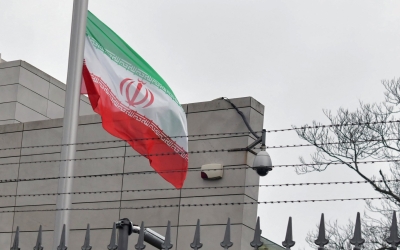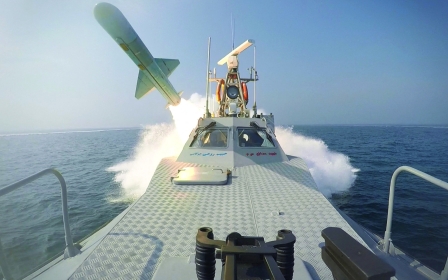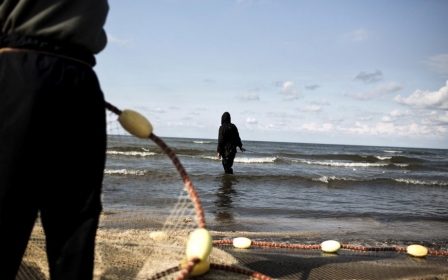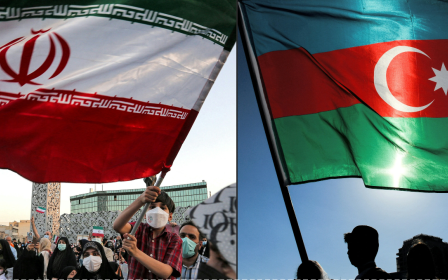Iranian press review: Threat of fresh Nagorno-Karabakh war raises alarm
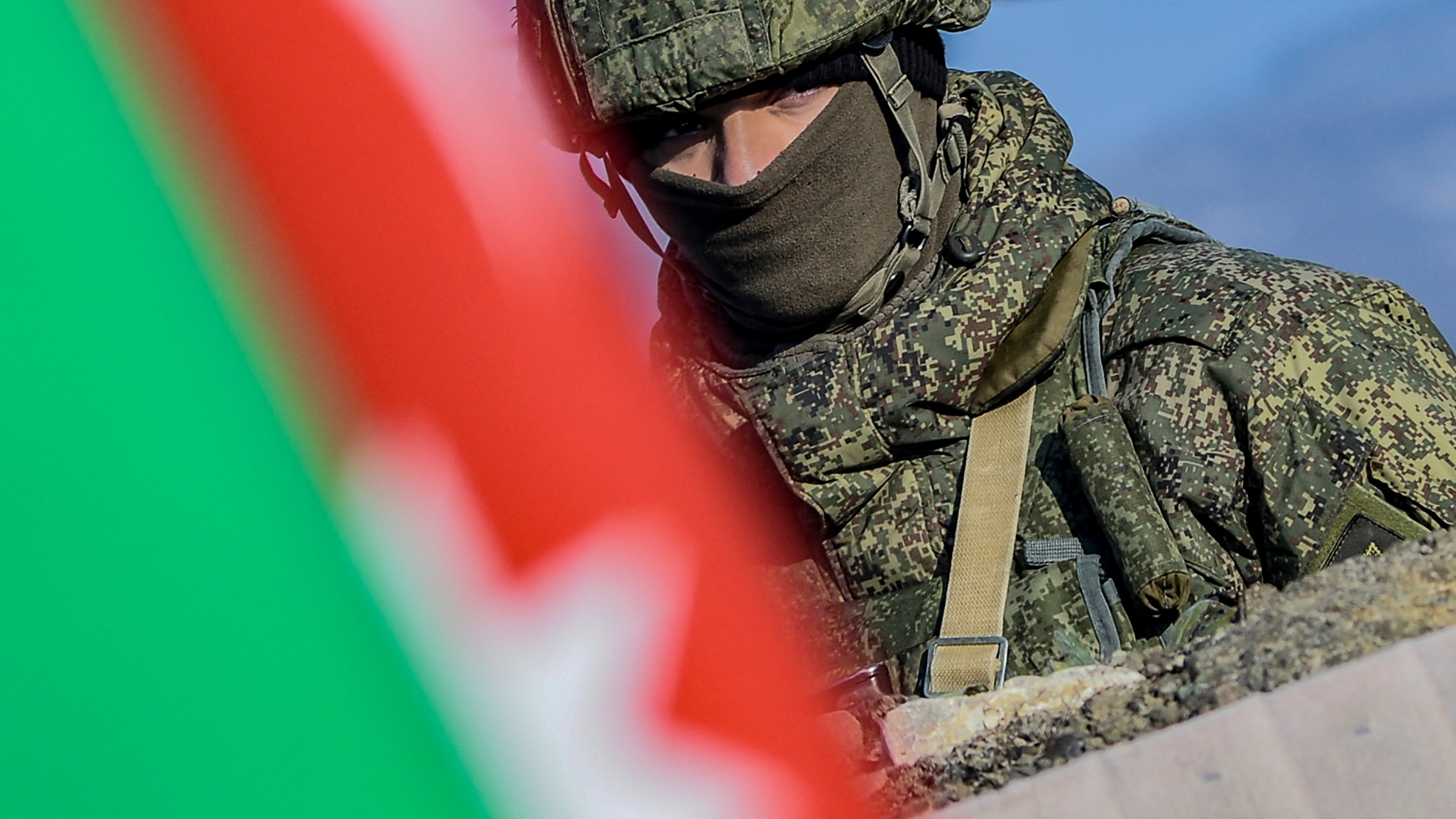
Rising Nagorno-Karabakh tensions
As tensions mount between Armenia and Azerbaijan, several daily newspapers in Iran wrote on Monday about the dangers of a new war in the region and its potential impact on Tehran’s geopolitical influence.
The threat of a fresh conflict between Iran’s two northern neighbours is driven by the Zangezur corridor that Azerbaijan wants to establish to connect its mainland to the Nakhchivan Autonomous Republic exclave.
This corridor will also create a land connection between Azerbaijan and its leading regional ally, Turkey. At the same time, it will cut the connection between Iran and Armenia, which is vital for Tehran to maintain a land connection with Russia.
The Ham Mihan daily, under the headline Corridor of crisis, wrote that Ankara had assured Azerbaijan of its full support in the case of a new war, adding that Turkey's Foreign Minister Hakan Fidan allegedly warned Iran about its military aid to Armenia during his visit to Tehran last week.
"In the past two years, Baku and Ankara have been evaluating Iran's seriousness of military intervention if a new war begins over the corridor. However, Azerbaijan's military action would be implausible unless they make sure Iran would not put its military support behind Armenia, as it had done in Syria," wrote the daily.
Meanwhile, the Sazandegi daily wrote that Israel and Turkey support Azerbaijan in this three-decade-long conflict, while Iran's stance toward the recent developments in and around Nagorno-Karabakh is closer to the US and France's policies.
Sazandegi's columnist, Amir Abbas Nakhaei, warned that the current military build-up and continuing skirmishes could cause a new humanitarian disaster similar to the Armenian genocide of 1915-17.
"Baku's ambitious plans for Karabakh, which receive Ankara's support, had put the Armenians living in the region in a situation that could lead to a new genocide," suggested the daily.
No one cares about miners' safety, says expert
A deadly explosion earlier this month in northern Iran has led to renewed criticism of the authorities' neglect of miners' safety, as experts accuse officials of keeping unsafe mines open under the excuse of "creating jobs”.
On 3 September, in the latest accident in an Iranian mine, a tunnel in the Tarzeh mine collapsed after an explosion. Six miners trapped in the tunnel died from breathing toxic gas.
Faryal Mostofi, an Iranian mining expert, told the Faraz online daily that government officials needed to pay more attention to workers' safety in mines.
'Accidents happen in mines all across the world, but nowhere else are the number of such incidents as high as ours'
- Faryal Mostofi, Iranian mining expert
"After the explosion, some officials visited the mine. These officials must answer this question: wasn't it better that they had visited the mine before the explosion and had more supervision over safety measures?" she asked.
Mostofi stressed that the lack of sufficient safety checks, failure to follow global standards, and absence of up-to-date technology were the leading causes of accidents in Iranian mines.
"Accidents happen in mines all across the world, but nowhere else are the number of such incidents as high as ours, and specifically not repeating in one specific mine," she said, referring to previous deadly accidents in the same mine.
The ILNA news agency, which covers Iran's labour news, also reported that several academics and experts had sounded alarms about the Tarzeh mine's safety over the past decade.
According to ILNA's report, since 1992 the average annual death rate in Iran's coal mines has been 105. The worst such accident happened in May 2017, when 43 miners died and over 70 were injured.
Teachers urge end to crackdown on unions
Teacher activists and unions have called on the government to stop what they described as an increasing crackdown on their members.
On 9 September the Council for Coordinating Education Unions (CCEU) reported that Iran's Kurdistan Teachers' Union lambasted the expulsion from work and imprisonment of teachers criticising “the establishment”.
"Kurdistan Teachers' Union strongly condemns the establishment's attack on teachers' independence and livelihood and demands an end to this flagrant and hideous action," read the statement published on the Telegram account belonging to the CCEU.
The non-governmental organisation also reported that the imprisoned teachers, Kayvan Mohtadi and Jafar Ebrahimi, were punished with additional penalties inside their cells.
Ebrahimi, a teacher and union leader, was transferred from the infamous Evin prison to Qezal Hesar, a jail with the worst record of prisoners' rights abuses. Ebrahimi, who has been in jail for the past 20 months, is now facing new charges of "threatening national security" and "disturbing society's comfort".
On 10 September Mohtadi was also transferred to solitary confinement, due to an audio file he smuggled outside the Evin prison in support of Ebrahimi.
* Iranian press review is a digest of news reports not independently verified as accurate by Middle East Eye.
Middle East Eye propose une couverture et une analyse indépendantes et incomparables du Moyen-Orient, de l’Afrique du Nord et d’autres régions du monde. Pour en savoir plus sur la reprise de ce contenu et les frais qui s’appliquent, veuillez remplir ce formulaire [en anglais]. Pour en savoir plus sur MEE, cliquez ici [en anglais].


